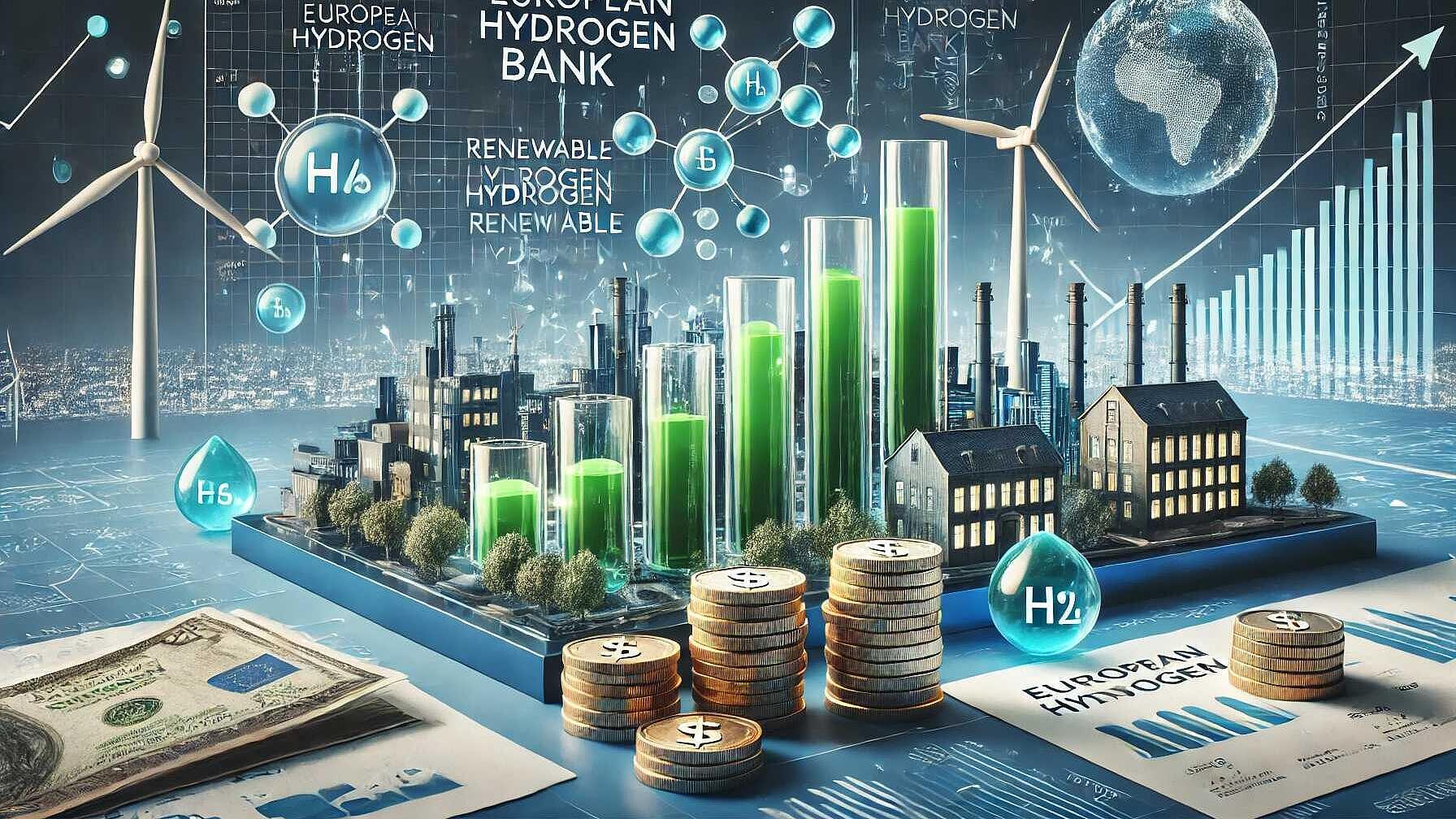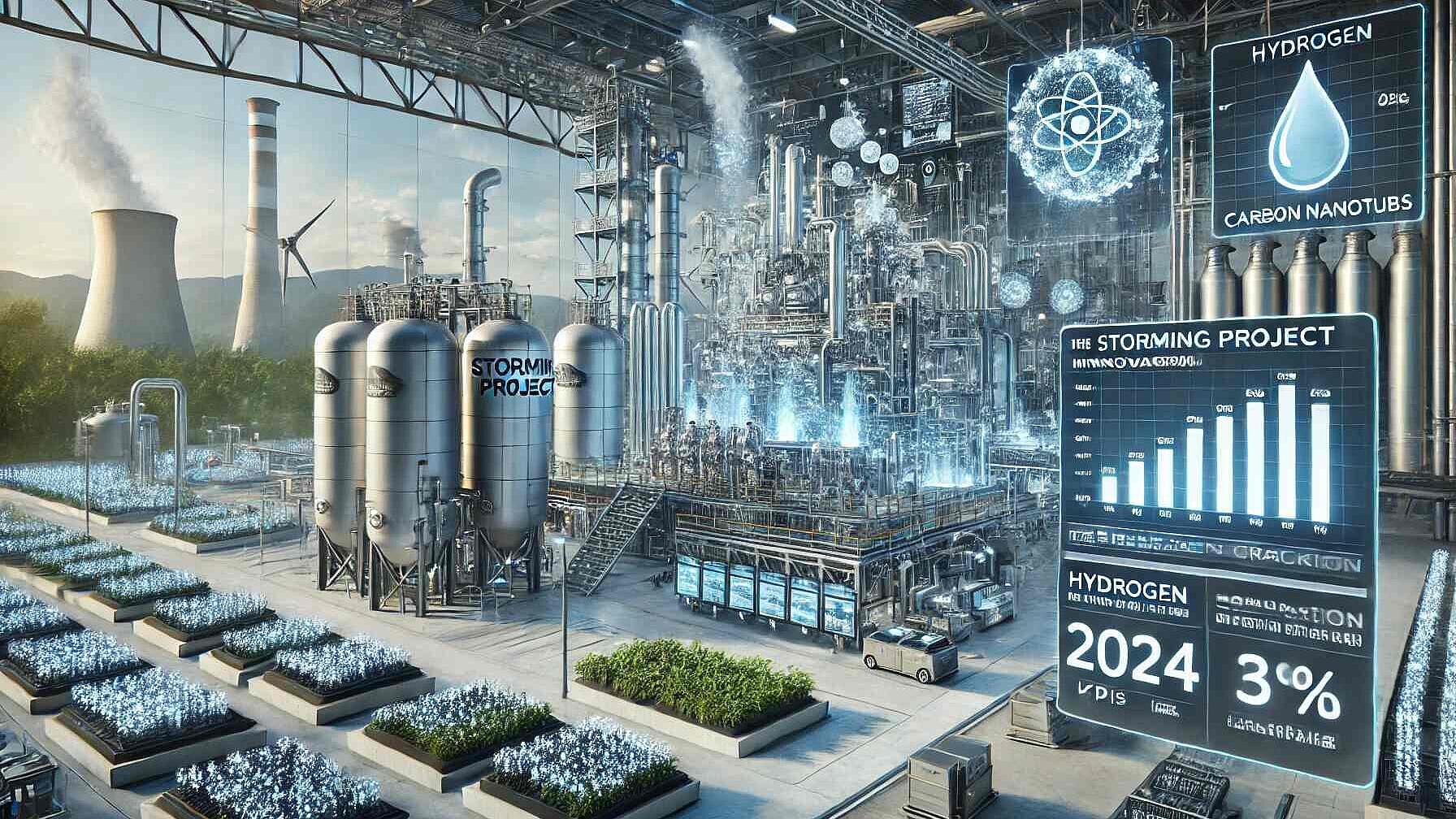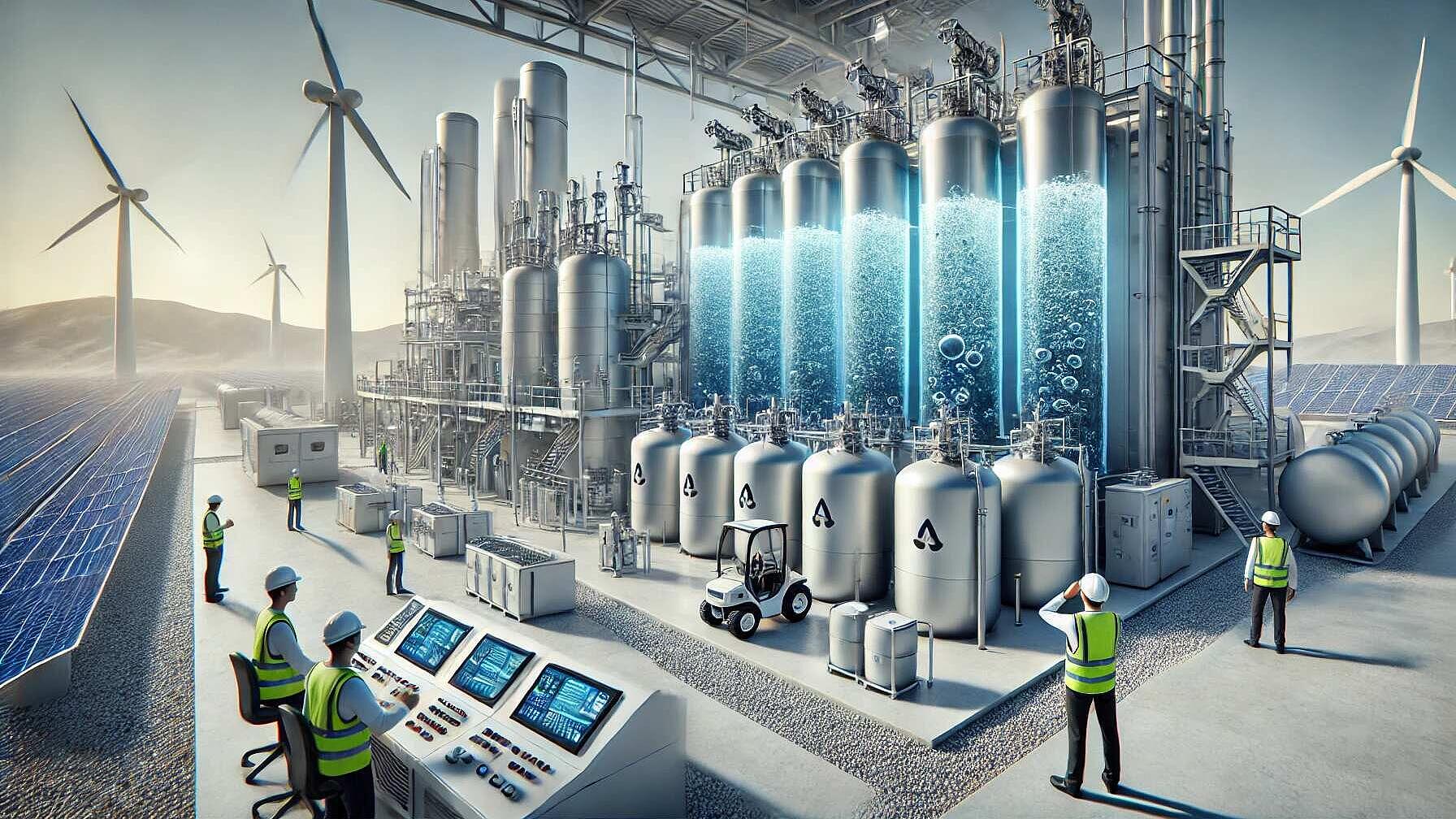 Renewable Energy
Renewable EnergyBoosting the Hydrogen Revolution: The Role of a European Hydrogen Bank
Summary
The European Union is actively working to incorporate renewable hydrogen into its energy strategy with the goal of meeting its 2030 climate targets and achieving climate neutrality by 2050. The EU's REPowerEU plan proposes the creation of a European Hydrogen Bank to drive the transition by supporting the production of renewable hydrogen through pilot auctions, subsidies, and international partnerships. The bank will facilitate the integration of hydrogen into the energy market, enhance transparency, and provide price benchmarks for efficient market development.
Renewable hydrogen serves to decarbonize hard-to-electrify sectors such as heavy industry, transportation, and heating. The EU aims to produce and import a total of 20 million tonnes by 2030, with initiatives like the Net Zero Industry Act underpinning this commitment. The cost of renewable hydrogen production is higher than that of fossil fuels, and infrastructure development is ongoing. The European Hydrogen Bank will bolster domestic production and manage imports, including a potential “green premium” for imported hydrogen to incentivize international producers.
To achieve these goals, the EU is focusing on international cooperation to benefit from shared expertise and investment. This integration effort aligns with other EU initiatives like the STORMING project, emphasizing the production of CO2-free hydrogen and advanced materials. The hydrogen transition promises job creation and enhanced energy security, positioning Europe as a leader in global hydrogen markets. The European Hydrogen Bank, along with technological and policy engagement, is pivotal for those interested in future energy systems.
Open full article
Boosting the Hydrogen Revolution: The Role of a European Hydrogen Bank
The transition to renewable energy sources is no longer just an option; it is an urgent necessity. Hydrogen, particularly renewable hydrogen, has emerged as a cornerstone in the EU's energy transition strategy. In a world striving to eliminate fossil fuels, hydrogen offers a promising solution, especially for industries and sectors that are notoriously hard to decarbonize. One significant step toward realizing this vision is the establishment of a European Hydrogen Bank, as outlined in the European Union’s REPowerEU plan. This bank aims to bridge the gap between renewable hydrogen production and market demand, paving the way for a cleaner, more sustainable future.
The Hydrogen Landscape Today
In 2023, the European Commission recognized that hydrogen would be indispensable in achieving its 2030 climate targets and 2050 climate neutrality. The current energy landscape in Europe is one where fossil fuels still play a dominant role, but hydrogen is positioned to change that. According to the REPowerEU plan, Europe aims to produce 10 million tonnes of renewable hydrogen domestically and import another 10 million tonnes by 2030. This goal, while ambitious, highlights the commitment to scaling up hydrogen as a viable alternative to traditional fossil fuels.
Renewable hydrogen, primarily generated through the electrolysis of water using renewable electricity, offers a path to decarbonize sectors like heavy industry, transportation, and even heating, which are difficult to electrify. The EU's Net Zero Industry Act, part of the broader REPowerEU strategy, emphasizes hydrogen's role in achieving these decarbonization goals.
However, producing hydrogen at scale is not without its challenges. The cost of renewable hydrogen production is still significantly higher than fossil fuel alternatives, and the infrastructure required to support its widespread use is still underdeveloped. This is where the European Hydrogen Bank steps in, designed to facilitate hydrogen’s integration into the energy market by supporting both domestic production and international imports.
Innovative Solutions and Opportunities
One of the most critical aspects of the European Hydrogen Bank is its role in mitigating the cost differential between renewable hydrogen and fossil fuels. The bank is set to launch its first pilot auctions in 2023, designed to award subsidies to renewable hydrogen producers. These subsidies, in the form of a fixed premium per kilogram of hydrogen produced, will last for up to 10 years, helping early projects overcome the significant capital costs.
Beyond financial support, the bank will enhance transparency around hydrogen flows, prices, and infrastructure needs across Europe. It will act as a central hub, gathering data on supply and demand, and offering clear price benchmarks to ensure that hydrogen markets can develop efficiently and competitively. Additionally, the bank will coordinate renewable hydrogen transactions, both within the EU and with international partners, which is crucial for the global hydrogen market to thrive.
The European Hydrogen Bank is not only focused on the EU’s domestic market. It will also play a pivotal role in supporting renewable hydrogen imports. To ensure that the EU can meet its 10 million-tonne import target, the bank will work to streamline international trade agreements and facilitate cooperation with third countries. This effort includes exploring a "green premium" for imported hydrogen, incentivizing international producers to develop renewable hydrogen capacities. Such moves ensure the bank is forward-looking and able to adapt to global hydrogen developments, creating a market that can operate on a continental and global scale.
This focus on international cooperation ties into broader EU initiatives, such as Team Europe, which will ensure that hydrogen projects benefit from shared expertise, investment, and best practices. These coordinated efforts will allow for a more seamless integration of hydrogen into the global energy landscape.
Future Impact and Prospects
Looking ahead, the European Hydrogen Bank will be instrumental in building a robust hydrogen ecosystem that supports innovation, job creation, and long-term sustainability. By aligning hydrogen production and distribution with the EU’s climate goals, the bank promises to create significant economic opportunities, especially for students and young professionals entering the energy sector. Careers in renewable hydrogen, from research and development to market regulation and infrastructure planning, are set to grow exponentially as the EU’s hydrogen goals materialize.
Moreover, hydrogen can support the EU’s energy security by reducing dependency on external fossil fuel sources. With international partnerships, Europe can become a leader in hydrogen technology and a major player in the global energy market. By supporting both renewable hydrogen production and imports, the EU is ensuring that its energy transition will not only benefit from innovation within its borders but also from advances made globally.
This shift to hydrogen-based energy aligns with other cutting-edge projects like the STORMING initiative. The STORMING project, funded by the EU, focuses on using renewable electricity to convert methane (CH4) into CO2-free hydrogen and valuable carbon nanomaterials, which have applications in advanced technologies like batteries. Together, projects like STORMING and the European Hydrogen Bank highlight the EU's commitment to innovative and sustainable hydrogen solutions, ensuring that Europe remains at the forefront of global energy transitions.
Getting Involved
For young professionals or students in energy, industry, or policy, the hydrogen sector offers exciting opportunities for growth and impact. The creation of the European Hydrogen Bank provides a clear indication that hydrogen will be a critical element of Europe’s future energy system. For those interested in shaping the future of energy, now is the time to invest in understanding hydrogen technologies, market dynamics, and regulatory frameworks.
Engagement can take many forms—whether through further education in renewable energy systems, joining innovative projects like STORMING, or participating in EU-backed research and development initiatives. As hydrogen becomes more central to the EU’s energy strategy, those with expertise in hydrogen will be well-positioned to lead the next wave of energy transformation.
Conclusion
The establishment of the European Hydrogen Bank represents a significant milestone in the EU’s journey toward climate neutrality. By addressing the financial and logistical challenges of scaling renewable hydrogen production, the bank aims to catalyze a thriving hydrogen market, both within Europe and beyond. With projects like STORMING driving technological advancements and international partnerships fostering global cooperation, hydrogen is set to play a pivotal role in reshaping the energy landscape.
As the European Hydrogen Bank rolls out its first auctions and partnerships in the coming years, the future looks promising for hydrogen. Students, young professionals, and established experts alike have the chance to be part of this transformative journey, helping to build a cleaner, more sustainable world for generations to come.



